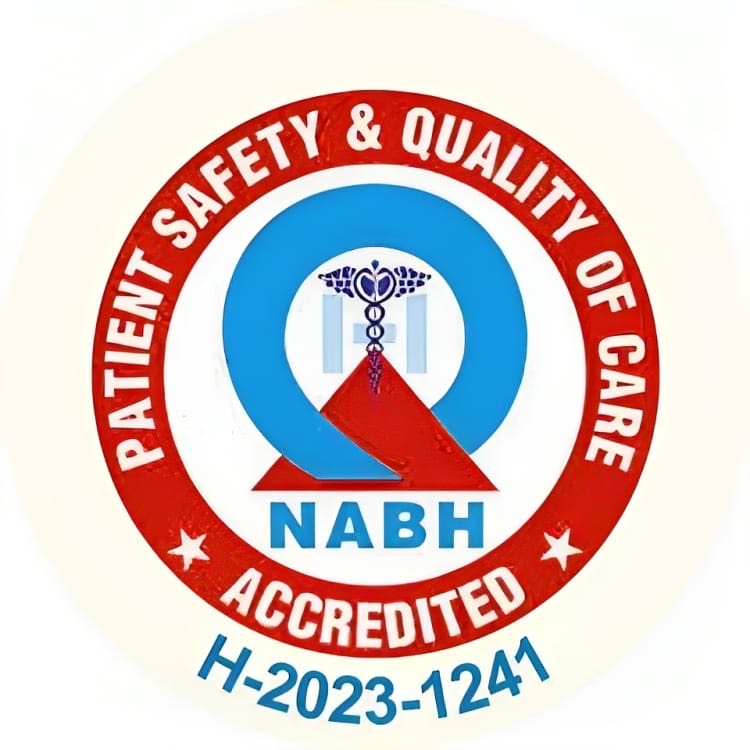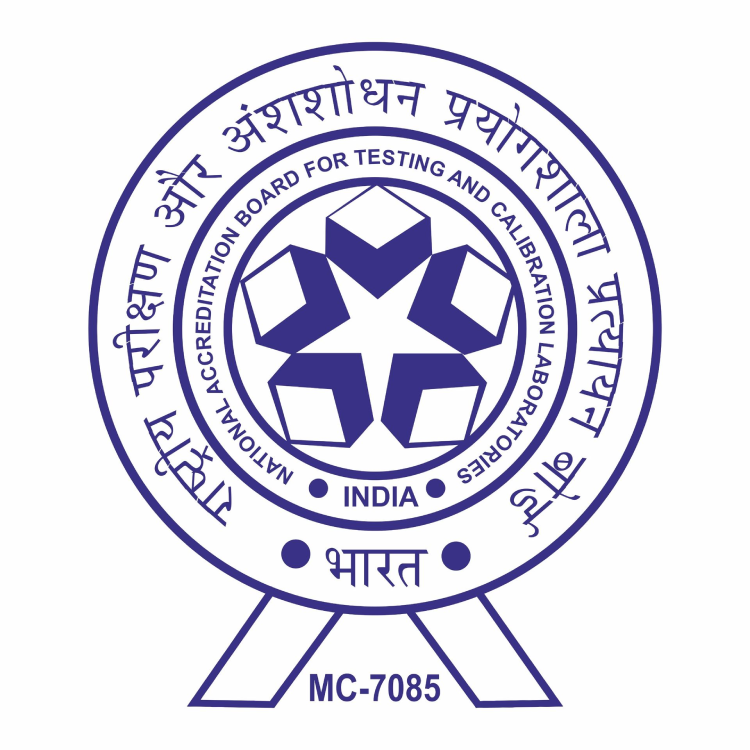Areas of Care
Cardiology and Cardiac SurgeryOrthopaedicsGastroenterologyNephrologyRadiologyOncologyNeurologyCritical Care UnitsObstetrics and GynaecologyPaediatricsPhysiotherapyRural Medical Outreach

Cardiology and Cardiac Surgery
Heart diseases are the leading cause of death all over the world, and gradually, the burden of heart ailments has been increasing in the rural and tribal pockets of South Gujarat as well. To address the growing need for quality cardiac services, Shrimad Rajchandra Hospital and Research Centre has a dedicated cardiology department.
The department has various experts including Interventional Adult and Paediatric Cardiologists, Cardio Thoracic and Vascular Surgeons and a Cardiac Rehabilitation Consultant.
- 24 hour-emergency care unit
- Well-equipped Cardiac ICU
- Adult and Paediatric Cardiology OPD with facilities like ECG, Echo cardiography, Dobutamine Stress Echo, Treadmill Test, Holter Monitoring, CT coronary angiography, cardiac MRI.
- Cardiac catheterization laboratory for advanced diagnostic and therapeutic procedures
- Coronary Angiography and Angioplasty
- Pacemaker Implantation / AICD / CRT
- Minimally Invasive Bypass Surgery and Valve replacement Surgeries

Orthopaedics
The orthopaedic department is equipped with the latest cutting-edge technology in terms of equipment, operating rooms, and recovery areas. With a modern, modular OT dedicated for orthopaedic surgeries, joint replacement and spine surgeries are routinely carried out.
Eminent super specialists from the field of paediatric orthopaedics provide their consultative services once a week and where required, carry out corrective surgeries for managing physical deformities.
This includes sophisticated surgical procedures such as the Ilizarov Technique, which is used for lengthening and realigning bones to correct severe physical deformities.
A striking feature of the Prosthetic and Orthotic (P&O) service is that every artificial limb or appliance is specifically designed by the P&O engineer and tailor-made by technicians to get the best fit for each individual patient. Free distribution drives of medical aids such as walkers, artificial limbs etc. are also conducted annually so that all patients in need receive appropriate support.
In addition to inpatient and outpatient services, a specialist team from this department visits distant and remote areas to conduct interventions.
Outreach camps are also organised periodically to serve patients at their doorstep. Several camps have been conducted jointly with the District Health Department.

Gastroenterology
Gastroenterology is focused on the digestive system and its disorders. The endoscopic unit offers a wide range of procedures for the diagnosis and treatment of gastrointestinal disorders.
Gastroenterologists perform a number of diagnostic and therapeutic procedures including esophagogastroduodenoscopy (EGD), endoscopic retrograde cholangiopancreatography (ERCP), endoscopic ultrasound (EUS), and liver biopsy.
Doctors at the Hospital specialise in the full spectrum of gastrointestinal, liver, and pancreatico-biliary diseases.
The unit comprises high-quality equipment and services with a focus on enhancing the entire patient experience, backed by a multidisciplinary team of consultants.

Nephrology
A holistic approach to the treatment of kidney disease is offered by this department. The progression of disease is monitored in a number of ways including imaging and blood tests.
A state-of-the-art dialysis unit is set up with six dialysis machines and specialised chairs to ensure the patient’s comfort.

Radiology
Radiology is a branch of medicine that uses imaging technology to diagnose and treat disease. Shrimad Rajchandra Hospital and Research Centre renders the following services under radiology:
The Hospital is equipped with a state-of-the-art CT scanner which can do procedures like dental scan, cardiac CT for coronary angiography, and whole-body angiographies.
High-quality imaging for procedures like stroke screening and whole spine imaging.
High-end sonography and colour doppler machines are used for various procedures.
Mammography machines are used for:
- Screening for early detection of breast malignancies.
- Diagnostic tests with special views for discharge lumps.
This machine can assess bone mineral density for early diagnosis of osteoporosis/osteopenia.

Psychiatry
All age groups are provided with comprehensive mental health care by this department. Special attention is paid to child psychiatry, and managing autism, ADHD and other childhood disorders. Addictions of all types, depression, anxiety, obsessive-compulsive disorder, bipolar disorder, schizophrenia, epilepsy, etc. are also treated. In addition to outpatient care, voluntary inpatient care is also available.

Oncology
Shrimad Rajchandra Hospital and Research Centre provides comprehensive and coordinated care for patients with all types of cancers, including solid tumours and blood-related diseases.
The cancer treatment cell is backed by a robust system comprising a blood bank, a competent radiology team, a modern pharmacy and a state-of-the-art laboratory. A team of qualified experienced medical oncologists and staff specially trained in handling and administration of chemotherapy is associated with the department.
- Medical Oncology – cancer treatment with medicines
- Oncosurgery – cancer surgery
- Palliative Care – symptomatic care of end-stage patients
- Dietician – for planning the diet of patients.
- Speech Therapist – for patients undergoing laryngectomy etc.

Neurology
Neurology is a branch of medicine that has gained more attention in recent years. This department addresses diseases such as epilepsy, Alzheimer’s, and Parkinson’s to name a few. A specialised paediatric neurologist is also present for children with autism, cerebral palsy, attention-deficit/hyperactivity disorder, and similar conditions.
The hospital is equipped with advanced testing equipment such as nerve conduction velocity studies, electromyography and electroencephalography. These tests help map a patient’s progress with the disease and help provide better care.

Critical Care
The Hospital’s Critical Care Department is an ultra-modern unit delivering evidence-based, high-class critical care. This vertical includes a Neonatal Intensive Care Unit (NICU), a Paediatric Intensive Care Unit (PICU), and an Adult ICU.
The well-staffed, state-of-the-art NICU at the Hospital has low morbidity and mortality outcomes, even though ~40% of the total admissions are critically-ill babies referred by other hospitals. Few of the facilities at the NICU include a high-frequency ventilator (HFV), surfactant replacement therapy (SRT) and thermal Care to combat hypothermia.
The PICU provides intensive care to critically ill infants, children, and adolescents.

Obstetrics and Gynaecology
Addressing the demographic challenges of the region, where the incidence of premature deliveries and high-risk pregnancies is significant, Shrimad Rajchandra Hospital and Research Centre has developed a truly holistic approach to high-quality maternal care.
This robust system has several levers, and when combined together, they ensure that the mother and child receive the best possible care.
Shrimad Rajchandra Safe Motherhood Programme is an initiative to enable less privileged expectant mothers to deliver in a clean and safe environment.
In the Valsad district and the bordering rural areas, there is no other facility, except for the one at Shrimad Rajchandra Hospital and Research Centre, where antenatal sonography is carried out free of charge for underprivileged, expectant mothers.
World-class ultrasound machines, operated by qualified radiologists, are used to perform foetal echo tests etc. to diagnose and monitor pregnant women.
The Hospital has a well-equipped and well-staffed ICU, which takes care of expectant mothers.
Several tests are taken up here, including complete blood count (CBC), blood Group determination, random blood sugar (RBS), sickle cell screening, detecting HIV infection, etc.
The microbiology lab plays a crucial role in the diagnosis and management of patients with puerperal sepsis (postnatal bacterial infection of the genital tract) which is a common cause for maternal mortality.
The changing hormone levels in pregnancy can lead to gum diseases and tooth decay, which can have a domino effect on both the mother’s and infant’s well-being.
The Hospital conducts dental care investigations and treatment for every antenatal case.
A pathbreaking study on Physiological Cord Clamping (an alternate method for child delivery) was carried out in Shrimad Rajchandra Hospital and Research Centre.
This study enumerates the multi-fold benefits of deferring cord clamping until after the placenta is expelled naturally, and its findings were published in a 2019 issue of the prestigious American Journal of Perinatology.
Expectant mothers registered with and visiting the Hospital for treatment are given Android-based tablets loaded with health-awareness videos in simple Gujarati. These videos offer the mothers-to-be a wealth of relevant information and prepare them for their journey towards motherhood.

Paediatrics
Most of the expectant mothers examined by the Hospital for delivery suffer from acute malnutrition and are severely anaemic. Consequently, babies born to them are premature or of low birth weight and at serious risk of losing their lives.
Hence, one of the primary goals of Shrimad Rajchandra Hospital and Research Centre is to help to continually reduce the Infant Mortality Rate (IMR) in Gujarat. The Hospital has been meeting this goal through the following paediatric-focused services and facilities:
The state-of-the-art NICU at the Hospital enjoys excellent morbidity and mortality outcomes, even though ~40% of the total admissions are critically-ill babies referred by other hospitals. Few of the facilities at the NICU include a high-frequency ventilator (HFV), surfactant replacement therapy (SRT), and thermal Care to combat hypothermia
Shrimad Rajchandra Hospital and Research Centre is the only place that provides free antenatal sonography for underprivileged, expectant mothers in Valsad and surrounding areas.
High-end ultrasound machines, operated by qualified radiologists, are used to perform fetal echo tests etc. to diagnose and monitor infants.
The microbiology lab is equipped with advanced, state-of-the-art equipment procured from leading manufacturers. This lab plays a crucial role in the diagnosis and management of treatments.
Shrimad Rajchandra Hospital and Research Centre has developed a Neonatal Transport Service in cooperation with faculty and staff from Stanford University School of Medicine, Lucile Packard Children’s Hospital Stanford and GVK EMRI who run the 108 Ambulance Service.

Early Intervention Therapies and Procedures
The role of the Early Intervention Centre starts at the Neonatal Intensive Care Unit itself, where all high-risk new-born babies are carefully identified and begin receiving appropriate treatment in the NICU itself, such as chest and limb physiotherapy, womb positioning of the baby, and screening for visual disorders, such as Retinopathy of Prematurity (ROP).
Shrimad Rajchandra District Early Intervention Centre is first-of-its-kind in the state of Gujarat and has been recognised by the Government of India as a ‘Model Centre’.
Highly advanced consultations and treatment are available for paediatric patients from paediatric superspecialists representing diverse disciplines such as surgery, cardiology, orthopaedic surgery, neurology, ophthalmology, hemato-oncology, nephrology, endocrinology, and dentistry.
- Visual impairment and Ophthalmology
- Hearing Loss and Audiometry
- Neurology
- Orthopaedic Surgeries
- Speech-Language Pathology
- Psychiatry
- Dentistry
- Physiotherapy
- Robotic physiotherapy
- Aquatic therapy
- Sensory garden
- Occupational Therapy
- Sensory Integration and Neurodevelopmental Therapy
- Prosthetic and Orthotic Services
- Special Education
- Vision Therapy
- Psychological Counselling
- Psychiatric management
- Nutritional Services
- Lab Services
- Residential In-Patient Department

Adult Physiotherapy
Adult physiotherapy services provided include musculoskeletal rehabilitation, cardiopulmonary rehabilitation, neuro-rehabilitation and onco-rehabilitation.
The centre is also equipped with robotics and equipment and services for early mobilisation and rehabilitation of patients in the ICU who are critically ill or recovering from surgery.
Robotics physiotherapy is an enhanced and developed technology that overcomes the shortcomings of manual therapy – widening the range of motion achievable, in addition to saving time and physical efforts.

Emergency Casualty
The Emergency Department serves as the first point of contact for any critically ill patient needing immediate medical attention. With bedside resuscitation equipment, along with 5 beds and an 18-bed ICU with central oxygen supply, it is well-equipped to perform cardio-respiratory rehabilitation as well as provide quality intensive care.
Moreover, it undertakes prompt diagnoses of heart attacks, strokes and other medical issues. It also has three ambulance bays for quick transport.

Rural Medical Outreach and Awareness
The reality of the situation in rural South Gujarat is that vast proportions of the population lack access to even basic healthcare facilities, either due to financial or geographic reasons.
The Medical Outreach programme took birth in 2005 to provide free treatment to tribal communities, especially those that were unable to visit a hospital.

The following services are provided through the Outreach programme:
Speciality and multi-speciality medical camps are conducted in remote tribal villages. During these camps, medical specialists from the hospital and other metropolitan cities cater to the healthcare needs of the underprivileged, tribal population.
Government-run Primary Health Centres (PHCs) across Gujarat organise immunisation and health education sessions for expectant mothers and children, known as ‘Mamta Divas’ sessions. The Hospital has been supporting this activity for numerous years, by deputing staff in remote areas to conduct these sessions.
Under the Outreach programme, over 400 schools have been visited to screen tribal students for common ailments and provide them with the necessary treatment.
A ‘Mobile Dental Clinic’ is operated by the Hospital, which involves a van with a fully-equipped dental clinic and qualified dentists travelling far and wide to spread dental awareness, conduct basic check-ups and undertake procedures where required.



